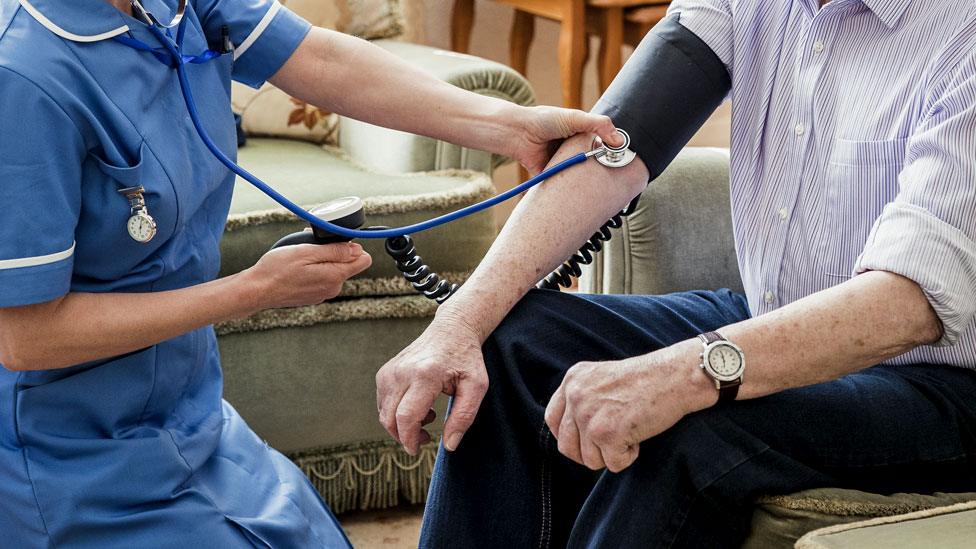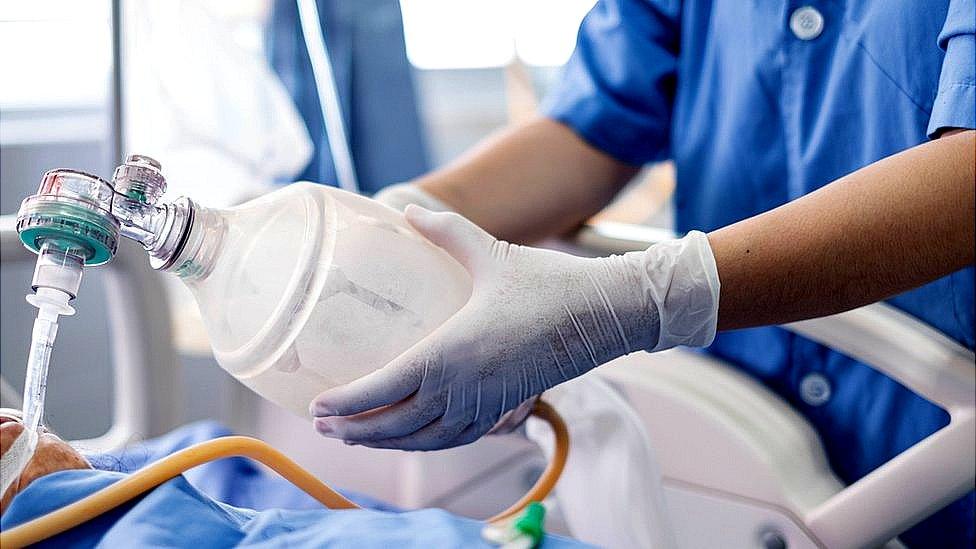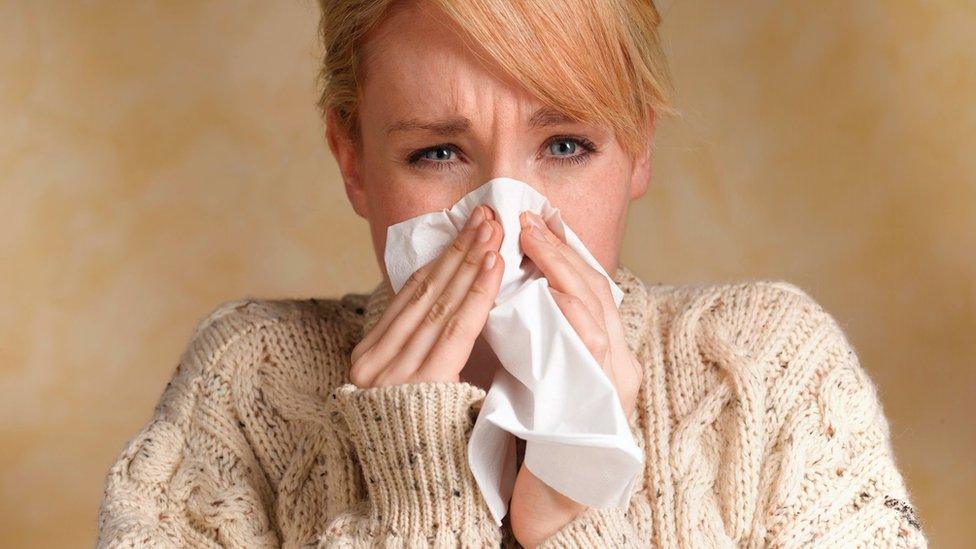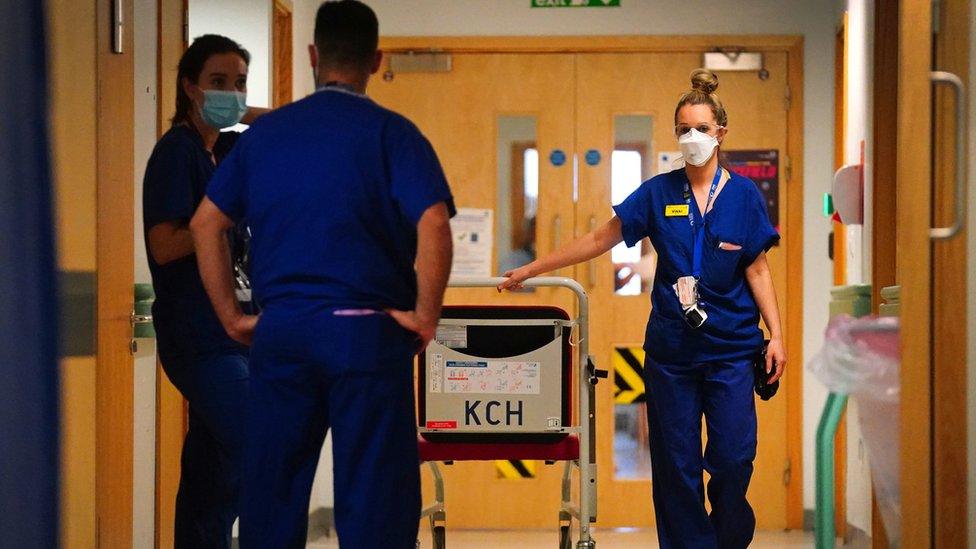South East hospitals told to discharge well patients
- Published

Hospitals are to work with social care providers to enable patients to be discharged from hospitals
Hospitals across Kent, Sussex and Surrey are being asked to discharge hundreds of patients who are well enough to leave by Friday.
The head of NHS South East, Anne Eden, said the beds are needed to deal with an expected surge in admissions of people ill with the Omicron variant.
The NHS nationally has agreed to a reduction of 30% of such patients based on the baseline figure of 13 December.
South East hospitals are being asked to make a 50% reduction by 31 January.
In a letter seen by the BBC, Ms Eden said: "This is in order to create the headroom to manage any further Covid pressures, with current modelling indicating a peak in Covid activity in mid-January."
She wrote: "It is now critical that we redouble our efforts to discharge those patients who no longer require bedded care, to create capacity, improve flow and reduce the pressure on staff."

Analysis
By Mark Norman, health correspondent, BBC South East
Patients described as "medically fit for discharge" don't need a hospital bed but they often need help and support if they are to leave hospital and stay safe and well.
The process to move someone out can be complicated if they are not simply going home.
They will need to be clinically ready, have an assessment done of their needs, and have a support package put together.
That might include money or care or adjustments made to their home - or all three.
Patients and their families have to consent to all the changes, sometimes this can be a sticking point
There has to be a clear pathway as to how their care will continue and an understanding of who will pay for it.
As the letter to NHS leaders points out, staying in a hospital bed longer than is necessary carries risks including the risk of additional infections.
Clinical staff will have some difficult decisions to make in the next few days to make sure patients get safe and effective care once they leave the confines of a hospital ward.

Ms Eden said staff absences and the need to maintain delivery of critical care for patients mean the NHS "must continue to focus on creating the necessary capacity to meet demand".
"Failure to do this will significantly increase the risk of a further rise in patient harm," she said.
She said hospitals must work with partners, including social care providers, to achieve the reduction in the number of patients in hospital who were well enough to be discharged.

NHS England fears a rise in hospital admissions as the Omicron variant spreads
David Brake, Medway Council's portfolio holder for adult services, said: "We continue to do everything we can to support our hospital colleagues to ensure that patients who are able to be discharged from hospital to continue treatment, or recover, at home are able to leave hospital safely, with appropriate support in place.
"We know that care providers are under enormous pressure at the moment, and we are committed to ensuring we keep residents who are receiving care, in all settings, as well as the staff who provide this essential support, safe."
Kent County Council (KCC) said it had "robust plans in place" to ensure vulnerable residents received the care they need.
Clair Bell, KCC's cabinet member for social care said: "We are doing everything we can to support the NHS and ensure that patients who are discharged from hospital are able to do so safely, with the appropriate support in place."
A spokesman for East Sussex County Council said: "As part of the wider local health and care system, the council continues to work together with the NHS, our local care homes and home care providers to support the timely and safe discharge of patients from hospital."

Follow BBC South East on Facebook, external, on Twitter, external, and on Instagram, external. Send your story ideas to southeasttoday@bbc.co.uk, external.
Related topics
- Published10 January 2022

- Published10 January 2022
